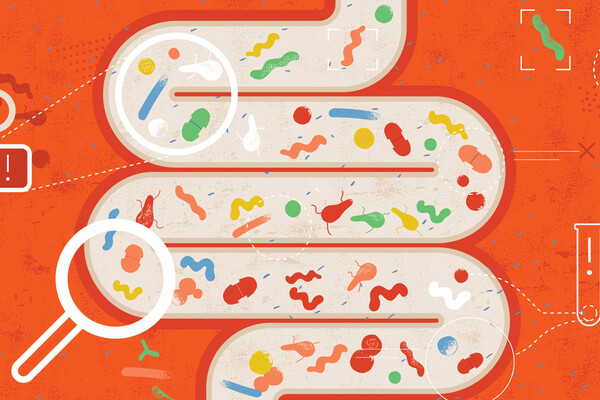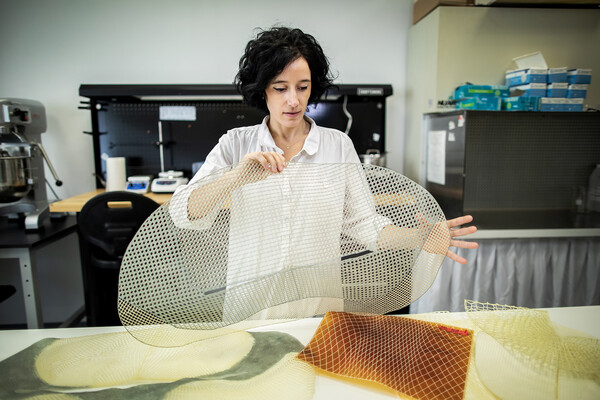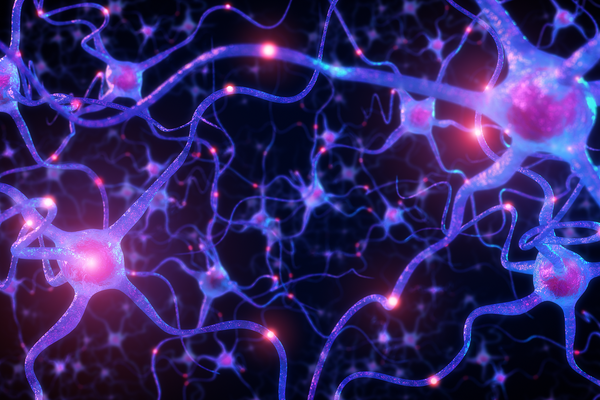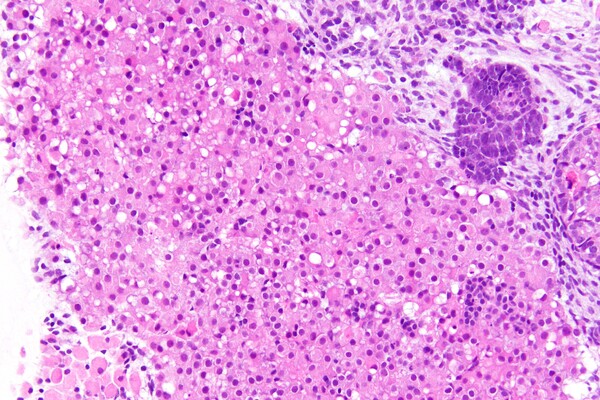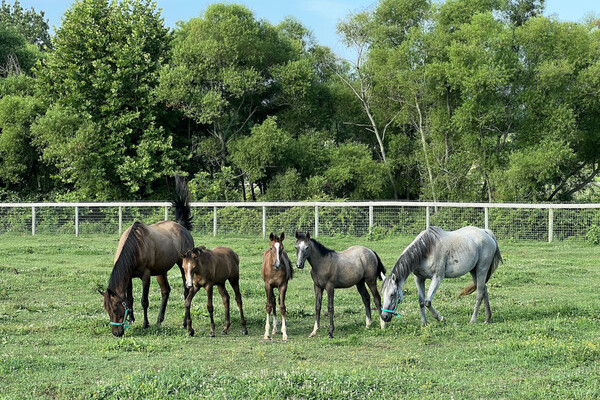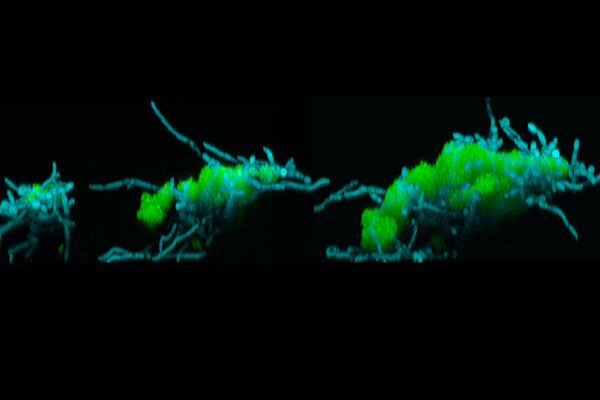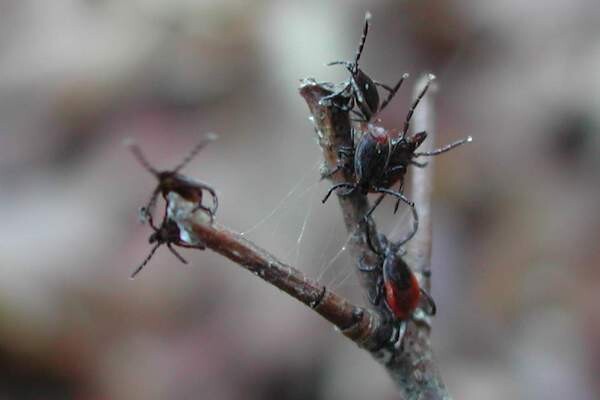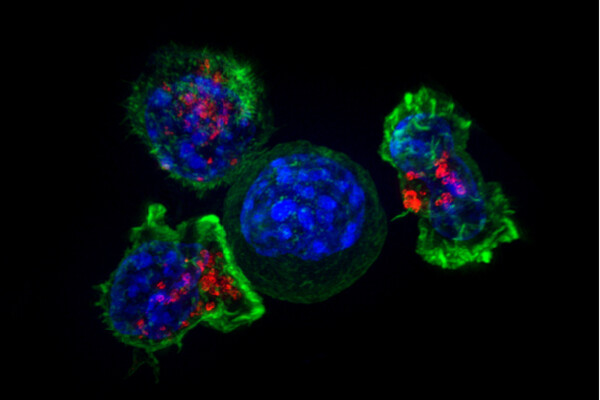4/16
Biology
Gut microbes can boost the motivation to exercise
A new study by Penn Medicine uncovers a gut-to-brain pathway that increases exercise performance.
What secrets might 2-million-year-old DNA hold?
Scientists from Denmark recently extracted and sequenced the oldest-ever DNA, from permafrost in Greenland, revealing a robust ecosystem of 135 species. Penn Today spoke with four faculty members about the potential power of ancient DNA.
People and places at Penn: Research
From Charles Addams Fine Arts Hall to the Schuylkill River, four researchers share their science and their spaces.
Minimally invasive method tracks how the brain spends energy
Penn researchers have developed a new technique for monitoring the brain’s metabolic rate of oxygen consumption, a measure of the brain’s consumption of energy.
Recreating the adrenal gland in a petri dish
A School of Veterinary Medicine–led team coaxed stem cells to take on the characteristics and functions of a human adrenal gland, progress that could lead to new therapies for adrenal insufficiencies and a deeper understanding of the genetics of such disorders.
Making ‘true’ equine IVF a reproducible success
A new method developed by Katrin Hinrichs and colleagues in the School of Veterinary Medicine resulted in the birth of three healthy foals, opening the door to new insights in the basic biology of horse reproduction.
Microbes that cause cavities can form superorganisms able to ‘crawl’ and spread on teeth
These multicellular, cross-kingdom assemblages were more resistant to antimicrobials and removal and caused more extensive tooth decay than their single-species equivalents, according to research led by School of Dental Medicine scientists.
Environment influences coral’s resilience to acidification
Ocean acidification is an effect of climate change that threatens the health of coral. A new study examines how coral samples from the Great Barrier Reef fare in acidic conditions.
Landscape and climate factors can predict prevalence of Lyme disease bacteria
Environmental models, developed by biologist Dustin Brisson of the School of Arts & Sciences, former graduate student Tam Tran, and colleagues, could help forecast disease hotspots.
T cells that ‘nibble’ tumors unwittingly help cancer evade the immune response
Blocking this process, known as trogocytosis, improved the ability of a CAR T cell therapy to treat cancer in mice, according to research led by School of Veterinary Medicine scientists.
In the News
When is the best time to take L-theanine—morning or night?
According to Colleen Tewksbury of the School of Nursing, research suggests that L-theanine may help support stress management, sleep, and potentially weight management.
FULL STORY →
Is the flu shot market a slam dunk for mRNA vaccines? Experts aren’t so sure
Scott Hensley of the Perelman School of Medicine is working on a flu vaccine to provide protection against 20 subtypes of flu that may pose a pandemic threat in the future.
FULL STORY →
Thanks, Neanderthals: How our ancient relatives could help find new antibiotics
A study by César de la Fuente of the Perelman School of Medicine and colleagues used AI to recreate molecules from ancient humans that could be potential candidates for antimicrobial treatments.
FULL STORY →
Long COVID brain fog may originate in a surprising place, say scientists
A study by Christoph Thaiss and Maayan Levy of the Perelman School of Medicine and colleagues finds that long COVID’s neurological symptoms, like brain fog, memory loss, and fatigue, may stem from serotonin reduction.
FULL STORY →
Long COVID research is in its ‘most hopeful’ phase yet
A study by Christoph Thaiss and Maayan Levy of the Perelman School of Medicine and colleagues suggests that serotonin could be a target for long COVID treatment.
FULL STORY →
A crucial pattern behind long COVID may have been identified
A study by Christoph Thaiss and Maayan Levy of the Perelman School of Medicine and colleagues suggests that several current hypotheses for the pathophysiology of long COVID are linked by a single pathway that is connected by serotonin reduction.
FULL STORY →




